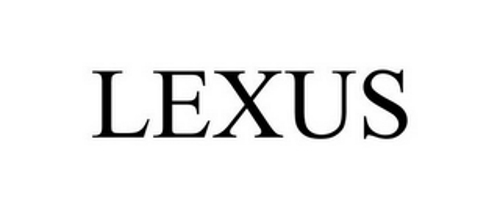 Farzad and Lias Tabris were auto brokers. They operated websites at buy-a-lexus.com and buyorleaselexus.com connecting buyers with dealers selling Lexus vehicles.
Farzad and Lias Tabris were auto brokers. They operated websites at buy-a-lexus.com and buyorleaselexus.com connecting buyers with dealers selling Lexus vehicles.
Toyota, which owns the Lexus brand, sued the Tabris’ for trademark infringement, but lost.
Toyota lost because the Trabris’ use was a “fair use” in the case of Toyota Motor Sales, USA, Inc. v. Tabari, 610 F. 3d 1171 (9th Cir. 2010)
When Trabris’ used the Lexus trademark they were referring to actual Lexus vehicles. If they didn’t use the term “Lexus,” how could they let customers know the type of vehicles that they broker?
Nominative Fair Use Defense
A defendant may succeed with a nominative fair use defense if: (1) the product is not readily identifiable without using the trademark, (2) the defendant used no more of the mark than was necessary, and (3) the use did not falsely suggest the defendant was sponsored or endorsed by the trademark owner.
As just explained on the first factor, the Trabris’ could not let customers know the type of vehicles that they broker without using the Lexus mark.
Regarding the second factor, at the time of trial the Trabris’ did not use the Lexus logo, font, or distinctive styling on the websites. Therefore, when they used the plan text “lexus” in the domain name and on the website they were using no more of the mark than was necessary.
Third, the contextual use of Lexus in the domain name did not make a false suggestion of endorsement. The court stated:
Because the official Lexus site is almost certain to be found at lexus.com (as, in fact, it is), it’s far less likely to be found at other sites containing the word Lexus.
On the other hand, a number of sites make nominative use of trademarks in their domains but are not sponsored or endorsed by the trademark holder…
Consumers who use the internet for shopping are generally quite sophisticated about such matters and won’t be fooled into thinking that the prestigious German car manufacturer sells boots at mercedesboots.com, or homes at mercedeshomes.com, or that comcastsucks.org is sponsored or endorsed by the TV cable company just because the string of letters making up its trademark appears in the domain.
The court further dismissed the argument that consumers would be confused before encountering the Tabris’ disclaimer used on the site, which provided “We are not an authorized Lexus dealer or affiliated in any way with Lexus. We are an Independent Auto Broker.” The court stated:
But nothing about the Tabaris’ domains would give rise to such confusion; the Tabaris did not run their business at lexus.com, and their domain names did not contain words like “authorized” or “official.” … Reasonable consumers would arrive at the Tabaris’ site agnostic as to what they would find. Once there, they would immediately see the disclaimer and would promptly be disabused of any notion that the Tabaris’ website is sponsored by Toyota.
Therefore the court noted that when a customer arrives at a website with a trademark plus additional terms (except for words that imply a sponsorship or endorsement) in the domain name, the customer will be agnostic as to whether the website is authorized by the trademark holder or not. The customer will consider the content of the website to determine whether it is authorized by the trademark holder or not.
Responding to a Cease and Desist Letter
If you are using a mark to refer to the genuine product carrying the mark, then you might be able to assert the nominative fair use defense.
You will have a better chance of succeeding with a nominative fair use defense if you (1) do not use the trademark holder’s logo, distinctive style, or font when using the trademark, and (2) do not use any words such as “authorized,” “official,” or similar words that could indicate a sponsorship or endorsement by the trademark owner.
The court stated that a defendant is not required to use a disclaimer in order to win with a fair use defense. But, a disclaimer will strengthen the defense.